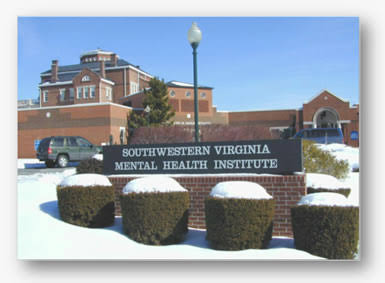Northam’s latest proposal a ‘down payment’ to address pressing challenges
BY: KATE MASTERS
With Virginia’s state-run mental hospitals in the midst of a self-described crisis, Gov. Ralph Northam is proposing a $485 million investment in behavioral health services.
The proposed allotment was announced Wednesday ahead of next week’s special General Assembly session, where lawmakers will decide how to distribute $4.3 billion in federal relief funding. Mental health funding has been a closely watched initiative since the state halted new admissions to more than half of its publicly funded psychiatric facilities amid major, and widespread, staffing shortages.
Just over half of the proposal —$247 million in total — would use flexible funding from the American Rescue Plan, largely to address urgent staffing needs within the facilities, according to Secretary of Finance Joe Flores. Another $128 million comes from nonflexible aid specifically earmarked in the last two Congressional relief packages for community-based mental health and substance abuse services.
The majority of those earmarked funds will go directly to community services boards — local agencies that provide safety net services to Virginians with mental health and substance use disorders as well as those with developmental disabilities. But the governor is also proposing another $30 million in rescue plan funding for local crisis services, including mobile units to respond to patients experiencing a mental health emergency.
The “two-pronged” approach, Flores said, is an effort to ease the burden on Virginia’s state-run psychiatric hospitals. For years, the facilities have struggled to manage a growing share of involuntary admissions that are no longer being accepted at private hospitals.
That situation reached a breaking point earlier this month, when Alison Land, commissioner of the Virginia Department of Behavioral Health and Developmental Services, halted new admissions at more than half of the state’s hospitals. One facility — Catawba Hospital near Roanoke — will begin accepting “limited” numbers of new admissions on Thursday, but the crisis facing state-run hospitals “continues to be fluid and intense across the commonwealth,” the agency said in a news release.
Staffing shortages are one of the most pronounced challenges. As of Monday, the department was reporting 1,616 vacancies, driven by high patient volumes, mandatory overtime and pay that remains well below the average market rate. The governor is proposing $45 million in rescue funding to continue staff bonuses first initiated by Land, and another $77 million to adjust salaries in the first year of the state’s next biennial budget cycle.
Long-term, the department has asked to raise salaries up to the 75th percentile of industry standards. The administration is still studying the request, according to Flores, but Northam also committed up to $77 million in state funding to permanently raise wages in the second year of the state budget.
“This funding package is a down payment that will significantly increase support for our state hospitals, community-based providers, and substance abuse prevention and treatment programs so they can best serve those who rely on their services,” he said in a statement on Wednesday.
Other initiatives in the package include:
• $50 million for infrastructure improvements at state-run hospitals, including water and sewer improvements.
• Roughly $3.3 million to expand an existing dementia pilot program, which diverts patients living with the disease from state hospitals to long-term care facilities.
• The previously mentioned $30 million for crisis services, including mobile response teams and receiving centers designed to divert patients from state hospitals.
• $30 million for substance abuse, including $10 million for prevention services delivered through the Virginia Department of Health, $10 million for treatment services delivered through DBHDS, and $10 million for grants to community recovery centers.
Beyond the funding specifically earmarked for community-based services, the governor’s proposal does little to dramatically expand the availability of wraparound supports for patients with mental illness. Those include early prevention services to keep individuals from experiencing a mental health emergency.
Over the last several years, the state has gradually expanded STEP-VA, a program designed to bolster those supports. It’s also in the process of expanding mental health coverage under Medicaid. But advocates are calling for more, particularly given Virginia’s national ranking in psychiatric funding.
“ARP dollars are one-time funds and Virginia’s growing mental health care crisis is not a problem that can be solved with a one-time solution,” Anna Mendez, executive director of the Charlottesville-based nonprofit Partner for Mental Health, said in a statement.
“Virginia is the 10th wealthiest state in the nation, but ranks 30th in per capita public mental health care spending,” she added. “The residents of the 10th wealthiest state deserve to have the 10th best funded mental health care system, which would require doubling the level of current state spending.”
Both the administration and state lawmakers, though, have been hesitant to commit federal funding to programs and services that could later require long-term budget commitments. Sen. George Barker, D-Fairfax — a long-time member of the chamber’s Education and Health Committee — said the proposal was intended to provide immediate relief for some of the most pressing challenges facing state hospitals.
“It’s getting them from a very bad situation to a better — but still not very good — situation,” he said.



